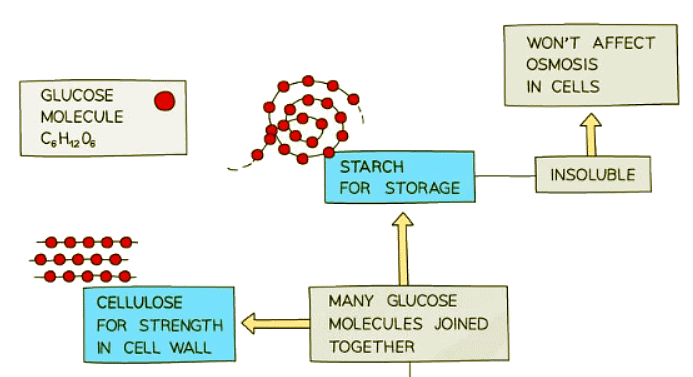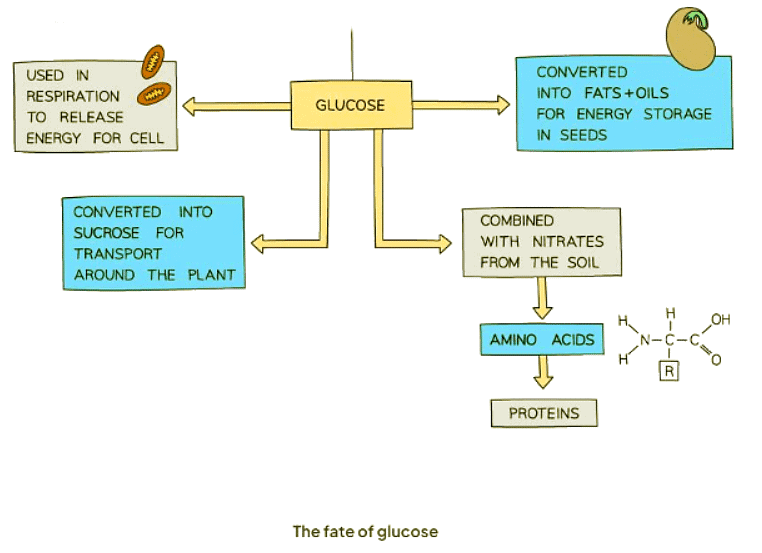Class 10 Exam > Class 10 Notes > Biology for GCSE/IGCSE > Use & Storage of Carbohydrates
Use & Storage of Carbohydrates | Biology for GCSE/IGCSE - Class 10 PDF Download
How are the products of photosynthesis used?
- The carbohydrates produced by plants during photosynthesis can be utilized in several ways:
- Starch storage: Converted into starch molecules to act as an effective energy store.
- Cell wall construction: Converted into cellulose to build cell walls.
- Respiration: Glucose can be used in respiration to provide energy.
- Transport: Converted to sucrose for transport in the phloem.
- Nectar production: Used as nectar to attract insects for pollination.
- Plants can also convert the carbohydrates made into lipids for energy storage in seeds and into amino acids (used to make proteins) by combining with nitrogen and other mineral ions absorbed by the roots.


Question for Use & Storage of CarbohydratesTry yourself: How are the carbohydrates produced during photosynthesis used by plants?View Solution
The document Use & Storage of Carbohydrates | Biology for GCSE/IGCSE - Class 10 is a part of the Class 10 Course Biology for GCSE/IGCSE.
All you need of Class 10 at this link: Class 10
|
101 videos|193 docs|33 tests
|
FAQs on Use & Storage of Carbohydrates - Biology for GCSE/IGCSE - Class 10
| 1. What are the main sources of carbohydrates in our diet? |  |
Ans. The main sources of carbohydrates in our diet include foods such as bread, rice, pasta, fruits, vegetables, and grains.
| 2. How are carbohydrates used by the body for energy? |  |
Ans. Carbohydrates are broken down into glucose, which is then used by our cells as a primary source of energy for various bodily functions.
| 3. Can excess carbohydrates be stored in the body? If so, where are they stored? |  |
Ans. Yes, excess carbohydrates are stored in the body in the form of glycogen, primarily in the liver and muscles for later use as energy.
| 4. What happens if we consume too few carbohydrates in our diet? |  |
Ans. Consuming too few carbohydrates can lead to feelings of fatigue, weakness, and lack of energy as the body may not have enough glucose for proper functioning.
| 5. How should carbohydrates be stored in the pantry to maintain their freshness? |  |
Ans. Carbohydrates such as grains and flours should be stored in airtight containers in a cool, dry place to prevent moisture and pests from affecting their quality.
Related Searches
















